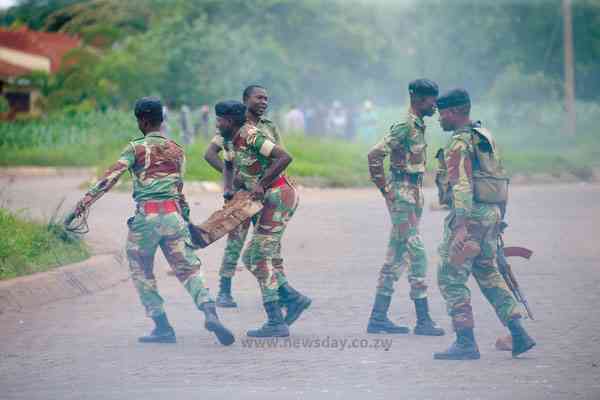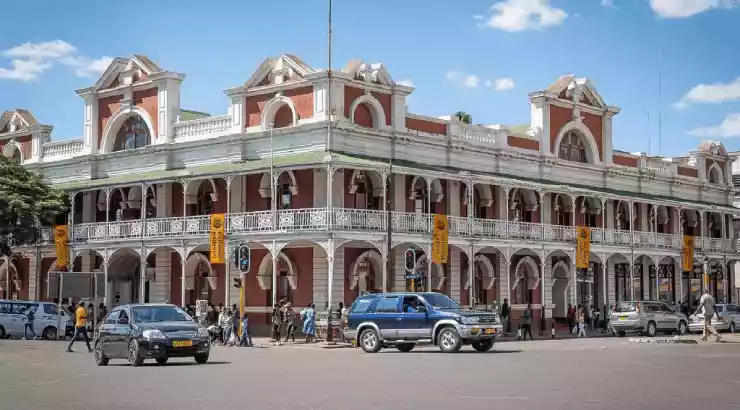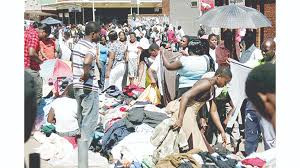
THE Zimbabwe National Army (ZNA) has been successfully sued over the 2019 shooting of a civilian during fuel price hike protests.
At least eight people were killed while several others were left nursing gunshot wounds and other injuries after the State deployed the army to put down the protests.
President Emmerson Mnangagwa was forced to cut short a foreign tour to deal with the countrywide protests after the price of fuel was increased by 150%. Mnangagwa was on a five-nation trip visiting Russia, Belarus, Khazakstan and Azerbaijan. He was supposed to end the trip by attending the World Economic Forum in Davos, Switzerland.
As the protests spread across the country, the army was quickly deployed.
A Chitungwiza man Felix Mafondokoto, who was shot in the backside has since been awarded US$29 182 compensation following a successful lawsuit against the Defence ministry after having been caught up in the army crackdown on the fuel protests.
Mafondokoto, who was being represented by the Zimbabwe Lawyers for Human Rights, cited the Defence minister and army commander as respondents.
He filed the summons on November 3, 2020 claiming US$49 182 compensation from the defendants broken down as: US$17 000 for pain and suffering, contumelia, nervous shock and trauma (US$17 000), medical expenses (US$3 182,15) and US$12 000 for loss of earnings.
He also demanded payment of interests and costs of suit.
- NoViolet Bulawayo’s new novel is an instant Zimbabwean classic
- Jah Prayzah, Zanu PF rekindles ‘lost love’
- Bank workers appeal to Ncube for tax relief
- Indosakusa marks 21-year anniversary milestone
Keep Reading
According to court papers, on January 15, 2019, Mafondokoto was accompanying his friend when six soldiers disembarked from their vehicle and indiscriminately attacked civilians while firing guns.
One of the soldiers poked Mafondokoto with his rifle and it accidentally went off, shooting him on the right backside. He fell into a ditch bleeding heavily.
Passersby later came to his rescue, and he was ferried to St Mary’s clinic.
The court heard that the soldiers attempted to take him from the clinic, but they were blocked by a crowd of Chitungwiza residents.
He was transferred to Chitungwiza Hospital and later to Belvedere Medical Centre.
In his army defence, army chief operations officer Colonel Whatmore Ziweni claimed that soldiers were not deployed on the day in question.
However, the court found that Mafondokoto was shot by a member of the ZNA.
“The shooter was identified by military uniform and was holding an AK47 rifle. These descriptions are synonymous with a soldier of the ZNA,” Harare magistrate Mbonisi Ndlovu ruled.
“It can’t be that an ordinary citizen would clad himself in military uniform and walk in broad daylight brandishing an AK47.
“The shooting, if anything, was an act of ‘accidental discharge’ of a firearm. The soldier surely did not mean to shoot the unarmed civilian, but it was accidental. Be that as it may, the defendants are vicariously liable for the negligent conduct of their officer.”
The magistrate added: “It is not so bound in the case where evidence is available to the plaintiff which he has not produced, in those circumstances the court is justified in giving and does give, absolution from the instance. But where the best evidence available has been produced, though it is not entirely of a conclusive character and does not permit of a mathematical calculation of the damages suffered, still, if it is the best evidence available, the court must use it and arrive at a conclusion based upon it.”
The court ruled that the Chitungwiza man suffered permanent injuries.
“The plaintiff still has the pain to this day because not all bullet fragments were successfully removed,” he said.
“There is no doubt that the plaintiff suffered severe injuries and he underwent much pain and suffering. The plaintiff now struggles to work for extended periods of time because of the injury thus impacting his livelihood.”
Ndlovu ruled that he be paid US$3 182 for special damages, US$10 000 for general damages of pain and suffering, US$9 000 for contumelia and US$7 000 for loss of earnings.










